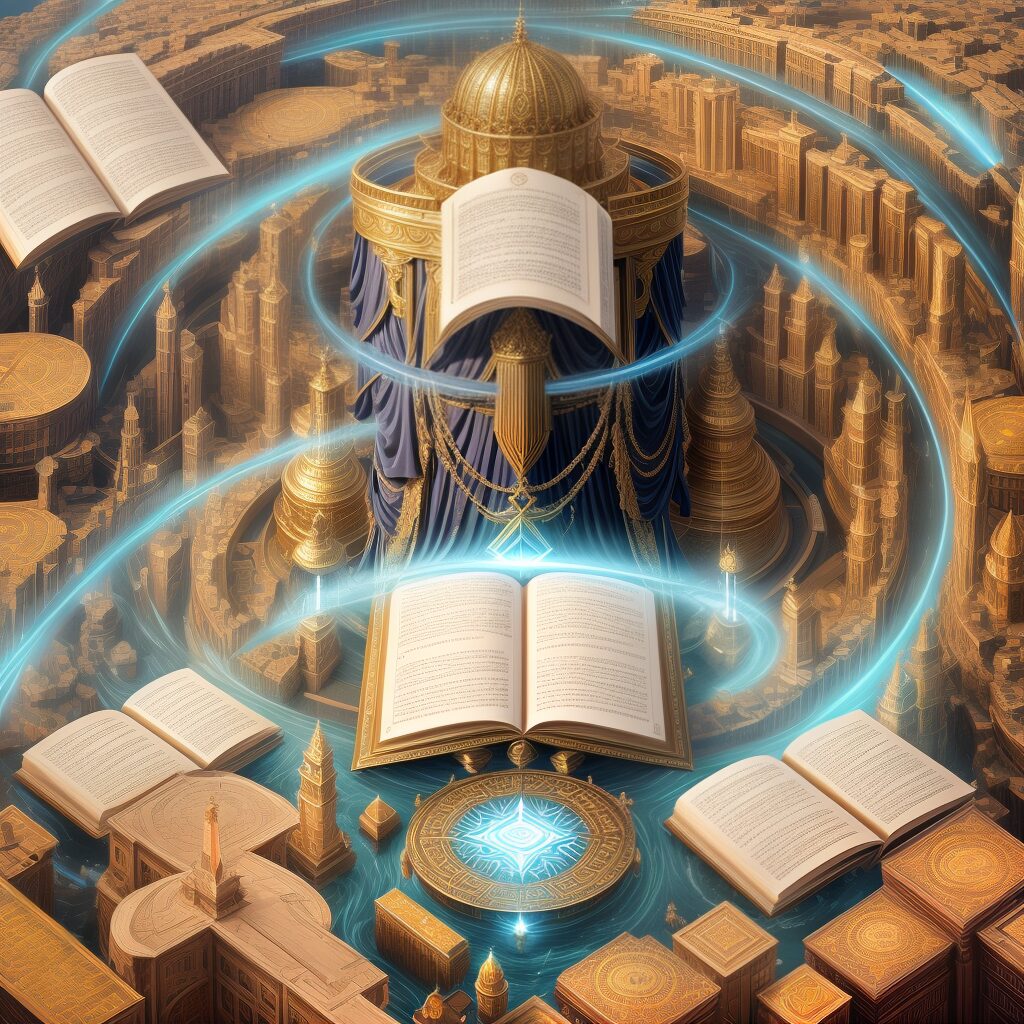
Greetings, saints of the Most High! Welcome to another installment of the Messianic Torah Observer. Today, we delve into the fascinating topic of the Noahide Laws, exploring their origins, development, and implications for both Jews and Gentiles.
Introduction to Noahide Laws
The concept of Noahide Laws originates from Rabbinic Judaism and its literature, particularly the Talmud. These laws were developed by the Talmudists between the 4th and 6th centuries CE, although hints of these precepts existed even earlier.
The Misinformation
Modern Orthodox Judaism teaches that non-Jews who keep the seven Noahide Laws will be granted a place in the world to come. However, this principle is not found in scripture but was developed during the Mishnaic and Talmudic eras. The Mishnah and the Talmud, which house Jewish oral law and commentary, played a significant role in shaping these laws.
The Jerusalem Council’s Edict
The Jerusalem Council’s edict to Gentile believers was not based on the Noahide Laws but on established Jewish halachah for resident aliens living among Jews. Resident aliens were Gentiles who lived and worked among Jews and adhered to community standards without converting to Judaism.
God Fearers
The term “God Fearers” refers to Gentiles who feared Yehovah and walked according to Torah, not necessarily those who kept the Noahide Laws. The earliest reference to the Noahide Laws is found in Tosefta Avoda Zara 8.4, part of the Mishnah, which outlines seven requirements for the children of Noah.
Expansion and Rabbinic Debates
Over time, the Noahide Laws expanded to include additional prohibitions, reflecting the complexities of life and the need for more comprehensive guidelines. Rabbinic debates on the Noahide Laws continued for centuries, focusing on their application and the distinction between Jews and Gentiles.
The Book of Jubilees
The Book of Jubilees suggests that Noah and his descendants were given the whole of Torah, challenging the idea that the Noahide Laws were separate from Torah. This perspective argues that the laws passed down to Noah were, in fact, the whole of Torah, reserved for the children of the covenant.
Conclusion
The Noahide Laws have a complex and debated history within Rabbinic Judaism. They were developed to create a distinction between Jews and Gentiles and to provide guidelines for Gentiles living among Jewish communities. Understanding these laws helps us appreciate the historical and theological context in which they were developed.
Waking-up From the Slumber-Feast of Tabernacles 2024-Kenya
Join Rod Thomas in this enlightening episode of the Messianic Torah Observer as he discusses the significance of the upcoming Spring Feasts, including Passover and the Feast of Unleavened Bread. Dive deep into the spiritual implications of these sacred times,...
Learning to Leave Well Enough Alone-Thoughts and Reflections on Torah Reading 24
Podcast Episode: Learning to Leave Well Enough Alone - Thoughts and Reflections on Torah Reading 24 In this episode of the Messianic Torah Observer, Rod Thomas delves into Torah Reading 24, titled "Learning to Leave Well Enough Alone." Rod reflects on...
The Two Afflictions That Get God’s Attention
Messianic Torah Observer Podcast Episode: The Two Afflictions That Get God's Attention Host: Rod Thomas Date: April 3, 2025 Episode Summary: In this episode, Rod Thomas shares his thoughts ahead of the spring feast and discusses the significance of Yom Kippur, the Day...
Shabbat HaChodesh-the Sabbath Before Biblical Rosh HaShannah 2025
Greetings and Introductions Greetings saints of the Most High. Welcome to another installment of the Messianic Torah Observer. Rod Thomas coming to you on a beautiful spring midweek day here in the DFW. I want to thank you for taking the time out of your busy...
Unlocking the Keys to the Kingdom Part 2: Binding and Loosing on Earth and in Heaven
Greetings and Introductions Greetings saints of the Most High. Welcome to another installment of the Messianic Torah Observer. Rod Thomas coming to you on a beautiful Spring midweek day here in the DFW. I want to thank you for taking the time out of your busy...
Unlocking the Keys to the Kingdom: Understanding Yeshua’s Teachings in Light of Torah
Greetings and Introductions Greetings saints of the Most High. Welcome to another installment of the Messianic Torah Observer. Rod Thomas coming to you on a beautiful Spring Preparation Day here in the DFW. I want to thank you for taking the time out of your busy...
Shabbat Zachor – Blotting out the Spirit of Esau in the Lives of God’s People
Greetings and Introductions As I am publishing this discussion, it is the 6th day of the 12th month on Yah's sacred calendar year, which translates to March 7, 2025. And we are potentially less than a month away from biblical Rosh HaShannah. As we near the end of this...
Understanding our Melchizedekian Priestly Pedigree-Part 4: Jasher’s Hidden Chronicles of the Melchizedekian Priesthood
Greetings, saints of the Most High! Welcome to another installment of the Messianic Torah Observer. Today, we delve into the intriguing topic of our Melchizedekian Priestly Pedigree, focusing on Jasher’s hidden chronicles. In Part 3, we explored the theological...
Understanding our Melchizedekian Priestly Pedigree-Part 3 : The Theological Implications of the Avram-Melchizedek Encounter
I. Greetings and Introductions Greetings saints of the Most High. Welcome to another installment of the Messianic Torah Observer. Rod Thomas coming to you on a cold, overcast Preparation Day in the DFW. Thank you for taking the time out of your...
Understanding our Melchizedekian Priestly Pedigree-Part 2 : Abram’s Melchizedek
This is "Understanding our Melchizedekian Priestly Pedigree Part 2: Avram’s Melchizedek.” Rehash of Part 1: The Royal Priesthood: Exploring the Historical, Spiritual, and Eschatological Roles of Melchizedek - Part 1 In part one of this...
